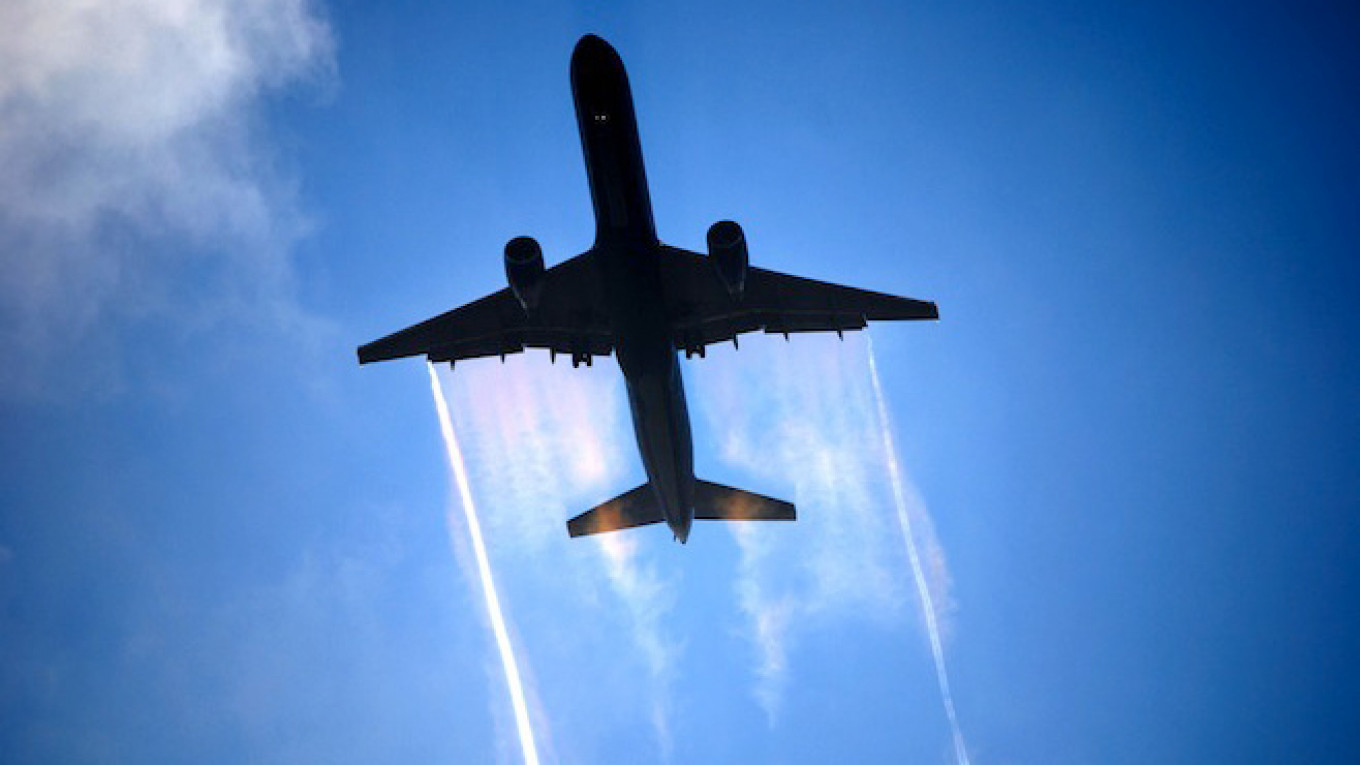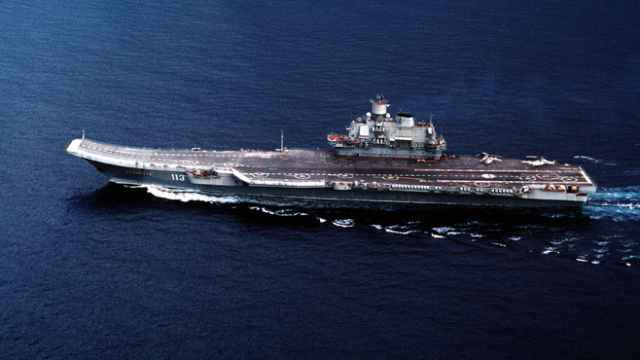Russia's largest aircraft manufacturer will receive a 100 billion ruble ($1.7 billion) capital boost from the government to stimulate production of passenger airliners, President Vladimir Putin said Friday.
"We have essentially taken the decision to provide additional capital of 100 billion rubles to the civil component of our aviation [industry], United Aircraft Corporation," Putin was quoted by the TASS news agency as saying Friday at a meeting with Internet entrepreneurs.
The move comes as Russia seeks to curb its dependence on foreign-made airliners amid tensions and tit-for-tat sanctions with the West over Ukraine.
It also aims to rebalance the aviation industry away from military orders that are increasingly dominating Russian manufacturing due to a multibillion-dollar rearmament program.
"We need to expand the civilian sector, they [civilian and military] should develop together," Putin was quoted as saying.
The state-owned United Aircraft Corporation was created in 2006 to revitalize aircraft production after over a decade of degradation following the fall of the Soviet Union. The company consists of around 30 aviation firms, including the famed design offices of Sukhoi, MiG and Tupolev.
But while UAC has had some success in producing and exporting military equipment, its flagship passenger jet, the Sukhoi SuperJet 100, has struggled to compete with the Boeing and Airbus planes preferred even by Russian airlines. Last year UAC delivered just 37 civilian airliners, compared to 124 military aircraft.
The firm is also under pressure from the massive loans it has taken out to fund its modernization efforts.
The company had debts of 270 billion rubles ($4.7 billion) as of June 30 last year, according to its most recent financial statements — this is almost as much as its total 2014 revenue of 285 billion rubles.
Nearly half of the company's borrowings are foreign currency loans, which have become harder to service due to ruble devaluation and more difficult to refinance because of Western banks' new wariness of Russia.
UAC earlier this year applied to the government for more than 20 billion rubles ($345 million) in loan guarantees.
Oleg Panteleyev, head of the AviaPort information agency, said the 100 billion capital boost would likely be used to repay and restructure debt.
Banks are leery of Sukhoi Civil Aircraft, the indebted UAC subsidiary that builds the Superjet, and reducing Sukhoi's loans would improve the health of UAC as a whole, Panteleyev said.
He added that the government had also discussed measures to lower interest rates on leasing contracts for Superjets to increase sales.
UAC did not respond to a request to comment.
The threat of Western sanctions has turned civil aircraft production into a government priority since the crisis over Ukraine began last year. Some 90 percent of the planes flown by Russian airlines are foreign made and leased from overseas, making them vulnerable to sanctions that forced one Russian airline to close last year.
Andrei Frolov of the Center for Analysis of Strategies and Technologies, a Russian defense industry think tank, said the capital injection could be used not only to cover the losses tied to Superjet production but push forward UAC's next civil airliner project, the MC-21, which is due to start production next year.
UAC is also planning a $13 billion Russian-Chinese wide-body aircraft project, for which the company is banking on state funds.
Russia's government seems committed to making the projects work.
"We must reconquer the air transport industry from foreign aircraft manufacturers," Deputy Prime Minister Dmitry Rogozin, who oversees Russia's military industrial complex, was quoted by TASS as saying at the January appointment of a new UAC president, Yury Slyusar.
Contact the authors at [email protected] and [email protected]
A Message from The Moscow Times:
Dear readers,
We are facing unprecedented challenges. Russia's Prosecutor General's Office has designated The Moscow Times as an "undesirable" organization, criminalizing our work and putting our staff at risk of prosecution. This follows our earlier unjust labeling as a "foreign agent."
These actions are direct attempts to silence independent journalism in Russia. The authorities claim our work "discredits the decisions of the Russian leadership." We see things differently: we strive to provide accurate, unbiased reporting on Russia.
We, the journalists of The Moscow Times, refuse to be silenced. But to continue our work, we need your help.
Your support, no matter how small, makes a world of difference. If you can, please support us monthly starting from just $2. It's quick to set up, and every contribution makes a significant impact.
By supporting The Moscow Times, you're defending open, independent journalism in the face of repression. Thank you for standing with us.
Remind me later.






